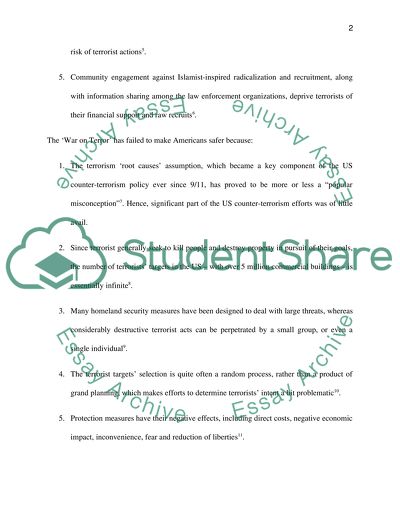Cite this document
(“Has the War on Terror made the American people more safe Research Paper”, n.d.)
Has the War on Terror made the American people more safe Research Paper. Retrieved from https://studentshare.org/history/1471080-has-the-war-on-terror-made-the-american-people
Has the War on Terror made the American people more safe Research Paper. Retrieved from https://studentshare.org/history/1471080-has-the-war-on-terror-made-the-american-people
(Has the War on Terror Made the American People More Safe Research Paper)
Has the War on Terror Made the American People More Safe Research Paper. https://studentshare.org/history/1471080-has-the-war-on-terror-made-the-american-people.
Has the War on Terror Made the American People More Safe Research Paper. https://studentshare.org/history/1471080-has-the-war-on-terror-made-the-american-people.
“Has the War on Terror Made the American People More Safe Research Paper”, n.d. https://studentshare.org/history/1471080-has-the-war-on-terror-made-the-american-people.


